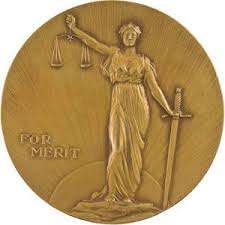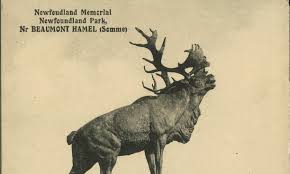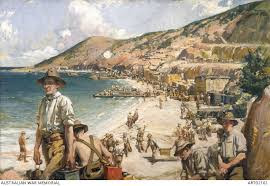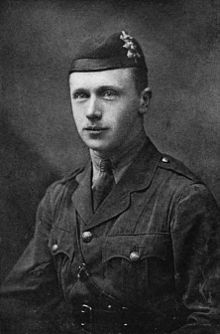With thanks to Dominic Sheridan of the Australian Great War Poetry Journal who has researched Turner and his work extensively for his commemorative project, for his guidance and inspiration
I was surprised to discover that one of my all-time favourite poems - "Romance"* - was written by a WW1 soldier poet.
Walter was born in South Melbourne, Australia on 13th October 1889. His parents were Walter James Turner (1857 – 1900), an organist at St Paul's Cathedral and a warehuseman, and his wife, Alice May Turner (née Watson), who was a musician. Walter was educated at Carlton State School, Scotch College and the Working Men's College.After the death of his father, Walter and his mother went to live in Britain. The 1911 Census shows Walter working as a merchant’s clerk and residing in Hugh Street, London, S.W. with his widowed Mother, who is listed as a musician and pianist. Among the literary personalities of the era, Walter met and became friends with Siegfried Sassoon, Virginia Woolf, Vita Sackville-West, and Lady Ottoline Morrell. Harold Monro, who founded the Poetry Bookshop and helped aspiring young poets to get their work published, included 13 of Walter’s poems in his Georgian Poetry anthologies.
Walter spent ten months travelling and writing in Austria and Germany between 1913 and 1914 and served as a Lieutenant in the Royal Garrison Artillery Anti Aircraft Section from 1916 to 1918.
On 5th April 1918, in Chelsea, London, UK, Walter married Marguerite Delphine Dubuis (1891 - 1951). From the First World War until the mid-1930s, Walter was known primarily as a poet. His 1916 poem entitled “Romance” ("Chimborazo, Cotopaxi....") is arguable the most famous of his poems. Walter dedicated his collection entitled “The Dark Wind” (E.P. Dutton & Co. New York, 1920) to Siegfried Sassoon, with whom he and his wife shared a house on Tufton Street, Westminster, London, before Sassoon moved out in 1925.
 |
| Photo of Walter and Seigfried Sassoon by Lady Ottoline Morrell c. 1925 |
W. B. Yeats was "…lost in admiration and astonishment" about Walter’s poetry, including some of Walter’s work in his “Oxford Book of Modern Verse 1892–1935", published in 1936 by Oxford University Press.
Walter was the literary editor of the weekly “Spectator” magazine from 1941 to 1946, and general editor of the Britain in Pictures series. He died in Hammersmith on 18th November 1946.
“Recollecting a Visit to W. B. Yeats” by Walter Turner
It is most pitiful to watch men go
In search of beauty with despairing eyes,
And what it is they lack as this world lies
Open before their gaze they do not know.
These porcelain skies with billows of graven snow
They paint on cold, thin cups, and draw from strings
Voices of mourning winds and sense of wings;
From woods rob sad-faced flowers and bid them grow
Nearer their souls; ay, creep out in the night
And steal the stars and the bright Moon from Heaven,
And bring them home to decorate their dreams
My God it is a strange and pitiful sight
To see the treasury of a poet's room
And him alone there shrouded in beauty's gloom!
Walter’s WW1 poetry collections were: “The Hunter and other Poems”
(Sidgwick & Jackson, London,1916)
“The Dark Fire” (Sidgwick & Jackson, London, 1918)
The Dark Wind (E.P. Button & Co., New York,1920) - a compilation of poems from “The Hunter”, “The Dark Fire” and “In Time Like Glass”
And his poems were included in eight WW1 poetry anthologies.
“The Sky-Sent Death” by Walter Turner
'A German aeroplane flew over Greek territory, dropping a bomb which
killed a shepherd.'
Sitting on a stone a Shepherd,
Stone and Shepherd sleeping,
Under the high blue Attic sky;
Along the green monotony
Grey sheep creeping, creeping.
Deep down on the hill and valley,
At the bottom of the sunshine,
Like great Ships in clearest water,
Water holding anchored Shadows,
Water without wave or ripple,
Sunshine deep and clear and heavy,
Sunshine like a booming bell
Made of purest golden metal,
White Ships heavy in the sky
Sleep with anchored shadow.
Pipe a song in that still air,
And the song would be of crystal
Snapped in silence, or a bronze vase
Smooth and graceful, curved and shining.
Tell an old tale or a history;
It would seem a slow Procession
Full of gestures: limbs and torso
White and rounded in the sunlight.
Sitting on a stone a Shepherd,
Stone and Shepherd sleeping,
Like a fragment of old marble
Dug up from the hillside shadow.
In the sunshine deep and soundless
Came a faint metallic humming;
In the sunshine clear and heavy
Came a speck, a speck of shadow —
Shepherd, lift your head and listen,
Listen to that humming Shadow!
Sitting on a stone a Shepherd,
Stone and Shepherd sleeping,
In a sleep dreamless as water.
Water in a white glass beaker,
Clear, pellucid, without shadow;
Underneath a sky-blue crystal
Sees his grey sheep creeping.
In the sunshine clear and heavy
Shadow-fled a dark hand downward ;
In the sunshine deep and soundless
Burst a star-dropt thing of thunder —
Smoked the burnt blue air's torn veiling
Drooping softly round the hillside.
Boomed the silence in returning
To the crater in the hillside,
To the red earth fresh and bleeding,
To the mangled heap remaining:
Far away that humming Shadow
Vanished in the azure distance.
Sitting on a stone no Shepherd,
Stone and Shepherd sleeping,
But across the hill and valley
Grey sheep creeping, creeping,
Standing carven on the sky-line.
Scattering in the open distance.
Free, in no man's keeping.
From “The Dark Wind”
* "Romance" by Walter James Redfern Turner
Dominic Sheridan, writing in his Australian Great War Journal*, has this to say:
"Walter James Redfern Turner - Australia’s Georgian Poet" served in the Royal Garrison Artillery from 1916 - 1918. He was born in South Melbourne, Australia. Writers such as Turner, Frederic Manning, Harley Matthews, Martin à Beckett Boyd and James Griffyth Fairfax, helped give Australia a literary voice in England. Walter wrote 13 poems for the Georgian School. Whether he had meant any of these poems to be chosen is difficult to say, but Harold Monro (poet and publisher) and Edward Marsh (editor), believed that these 13 poems by the expat Australian poet were worthy, not only of consideration, but also inclusion into two of the five anthological volumes of Georgian poetry”
https://76f98171-044b-4541-aab1-f00e8ed6041e.filesusr.com/ugd/040634_0e974ab8b64840e980f35bec476eef4d.pdf
Stephen Cribari, a poet who teaches law in America, has this to say: “Georgian Poetry only saw maybe five volumes, many of its contributors did not survive The War, but it does seem to have brought the major figures from the end of the Victorian Era together with the poets who would have marked the fullness of the Georgian Era, some of whose writing changed with The War and then changed the arc of English poetry after the war.
Edward Thomas, still in his prose mode, favorably reviewed the first volume. That was just before Frost turned Thomas toward becoming a poet. Thomas then submitted poems to Marsh for the second volume, but "Edward Marsh . . . had decided against the inclusion of either Thomas or Frost in his second volume of Georgian Poetry, not caring for Thomas's verse and imposing a new rule to exclude overseas writers from consideration." Hollis, "Now All Roads Lead to France," p. 248 (Faber & Faber, 2011). Thomas enlisted in The Artists' Rifles, which attracted as you know many artists and poets including Wilfred Owen. Though nothing seems to suggest Thomas knew Owen personally, "(o)ther poet members would include two minor Georgians, W.J. Turner and Edward Shanks." J.M. Wilson, Edward Thomas from “Addlestrop to Arras”, p. 336 (Bloomsbury, 2015).
Sources: Find my Past, British National Archives, Free BMD,
Catherine W. Reilly “English Poetry of the First World War: A Bibliography” (St., Martin’s Press, New York, 1978) p. 319
*Dominic Sheridan's Australian Great War Journal can be viewed here: https://76f98171-044b-4541-aab1-f00e8ed6041e.filesusr.com/ugd/040634_0e974ab8b64840e980f35bec476eef4d.pdf
“The Dark Wind” is available to view as a free download on Archive:
https://archive.org/stream/darkwind00turn/darkwind00turn_djvu.txt
"The Advertiser" Adelaide. Australian Associated Press (AAP). 21 November 1946. p. 8. https://trove.nla.gov.au/newspaper/article/35767906
Photograph of Siegfried Sassoon and Walter James Turner by Lady Ottoline Morrell (1873 – 1938) c. 1925.



































